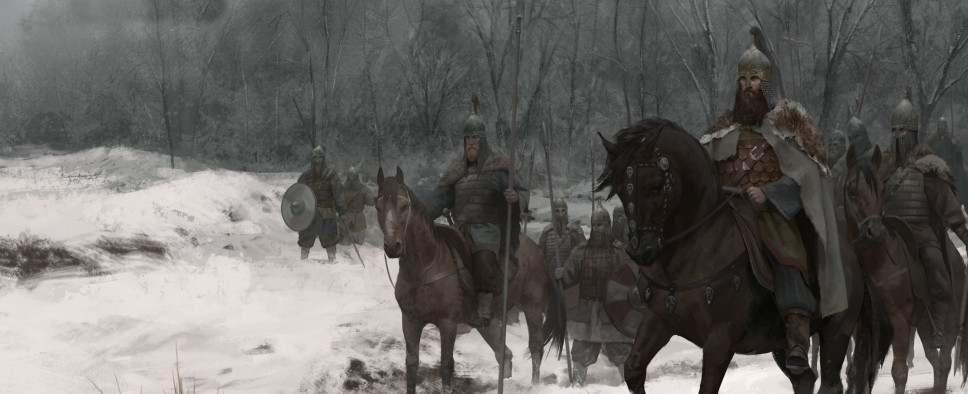Mount & Blade II: Bannerlord Developer Blog Q&A
-
Category: News ArchiveHits: 1292

This week's developer blog for TaleWorlds Entertainment's sandbox RPG Mount & Blade II: Bannerlord brings us an in-house Q&A with the studio's animator and motion capture artist Abdullah Nakipoğlu. The blog post tells us a thing or two about Bannerlord's complex animation process and also shows off a number of work-in-progress animations, so be sure to check those out.
Here are a few sample questions:
WHAT DO YOU NORMALLY DO DURING YOUR DAY?
“ Generally, my day-to-day routine consists of resolving issues with reported bugs, discussing new ideas or requested developments and preparing the prototyping of these ideas when necessary.
My duty as an animator is to prepare pretty much any kind of animation and implement it into the game. Sometimes it can be an animation of an animal, an attack/injury, the movement of various characters in settlements, or an animation of an icon on the campaign map. If a character animation is necessary, I start out by recording in our MoCap studio before cleaning the animation up by hand for the game. In the instances that we don’t use MoCap (like with geese/cows/dogs), I start by preparing the skeleton system before working on the animations, using any reference videos that I have gathered.
With Bannerlord, we are using our own engine that was developed in-house, and it is something that is constantly evolving and being improved over time. Unfortunately, this means that I sometimes have to revisit some older work that I have done. In such occasions, I generally try to make corrections using the available animations, but sometimes it is necessary to start from scratch.
When I have some spare time in between my duties, I spend as much of that time as possible playing the game to focus on the effects of the completed animations and to see if they give the impact that we desire or if there is any room for improvement. If I notice something, then I take some notes and make the necessary changes.”
WHAT DO YOU LIKE THE MOST ABOUT BANNERLORD?
“I have an interest in history and I like to read about and research ancient wars. Fighting on horseback, laying siege to a castle with your own army, fighting under the command of a general, being captured... With its rich and detailed world, Bannerlord offers all of these experiences and more! Furthermore, the game features a unique combat system that has been improved upon from Warband.”
WHAT'S THE MOST DIFFICULT THING THAT YOU SOLVED SO FAR, DURING THE PRODUCTION OF BANNERLORD?
“I have faced many different problems and issues during the production process, that’s for sure!
I have found it challenging, but also compelling, preparing animations that retain a somewhat natural feel to them, but still, work within the boundaries of the game mechanics. Sometimes, we come across comments like, “can the movements be more natural?”, and it is true that we could create more detailed and animated animations to make them look and feel more natural. However, this would ultimately limit the control of the character for the player. For example, players can interrupt an attack at any time by issuing a block command, or they can move their character in any direction without waiting for an attack to end. If we were to create totally realistic animations then we would have to restrict or reduce the control of the player in these instances. It is also important in some instances that we over-exaggerate an animation so that it can be clearly seen and recognised by the player, such as with our fast-paced directional combat system. Ultimately, we try to keep any animations that would limit the control of the player to a minimum, allowing players to use and develop their skills within a control system that responds instantly.
Another example of a challenging project is the injury/stun animations. These animations needed to be prepared separately for each part of the body, in three different levels... for four different directions! These animations needed to be short enough not to limit the control of the player, while working in accordance with the inverse kinematics (IK) system. As the animation we prepared with MoCap recording is playing on the base layer, the reaction coming from the IK system is attached according to the area and direction of the attack in the upper layer. Preparing the MoCap recordings for all of these and cleaning the body movements that are inappropriate for the IK system was a difficult process.”

